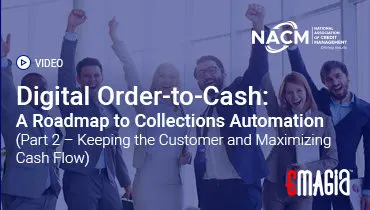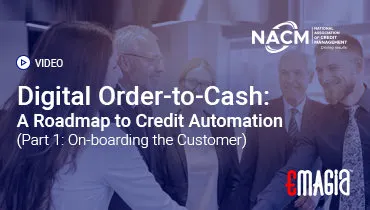For any business, maintaining healthy cash flow is paramount. However, overdue invoices and uncollected debts are an inevitable part of the commercial landscape. While internal collection efforts (often referred to as 1st party collections) are the first line of defense, there comes a point when a more specialized approach is required. This is where third party collection comes into play, offering a powerful solution for businesses grappling with persistent delinquencies.
This comprehensive guide will explore the world of third party debt collection. We will define what a third party collection agency is, how they operate, the significant benefits they offer, and the crucial regulatory landscape they navigate. Whether you’re a business owner considering outsourcing debt recovery or simply seeking to understand the process, this article will illuminate the vital role of external collection agency services in optimizing financial health.
Understanding the Role of a Third Party Collection Agency
When an original creditor or business struggles to recover outstanding payments through their internal efforts, they often turn to an external, specialized entity known as a third party collection agency. These agencies act as intermediaries, working on behalf of the creditor to retrieve the owed funds from debtors. This outsourcing allows businesses to focus on their core operations while leaving the often challenging and time-consuming task of debt recovery to professionals.
Defining What a Third Party Collection Agency Does
A 3rd party collection agency specializes in recovering past-due accounts. Unlike an internal collections department, these agencies are distinct legal entities. They employ trained collection agents who are adept at communicating with debtors, negotiating payment plans, and adhering to strict regulatory guidelines. Their primary function is to contact debtors, inform them of their outstanding balances, and facilitate repayment, which can sometimes involve legal action as a last resort. Essentially, they are a dedicated collecting agency meaning that they are solely focused on debt recovery.
The transition from internal efforts to involving a third party debt collector typically occurs when debts become significantly delinquent, usually after 90 to 120 days past due, or when internal attempts have proven unsuccessful. This external intervention often brings a renewed sense of urgency for the debtor, as they are now dealing with an independent entity whose sole purpose is debt recovery.
The Process of Third Party Debt Collection
Engaging in third party debt collection involves a structured process, ensuring compliance and maximizing recovery rates. Understanding these steps can help businesses prepare for and manage their outsourced collection efforts effectively.
Initiating the Handover: When Debt is Sold to Third Party or Assigned
The process begins when a creditor decides to transfer delinquent accounts to an external collection agency. There are two primary ways this can happen: either the debt is assigned to the agency for collection, with the original creditor retaining ownership, or the debt is outright debt sold to third party. In the latter case, the collection agency purchases the debt at a discount and then owns the right to collect the full amount, making them the new creditor.
Regardless of the model, the creditor provides the agency with all relevant debtor information and account details. This handover marks a critical juncture, as the 3rd party collections agency then becomes responsible for all future communication and recovery efforts, often adhering to a pre-agreed commission structure for successful collections.
Communication Strategies of a Third Party Debt Collector
Once accounts are placed, a third party debt collector initiates communication with the debtor. This typically starts with a debt validation letter, which legally informs the debtor about the debt, the creditor, and their rights under consumer protection laws. Subsequent communications may involve phone calls, emails, and SMS messages, all designed to secure payment or negotiate a manageable repayment plan. These communications must strictly adhere to regulatory frameworks to ensure fair practices and protect consumer rights.
Unlike internal collection efforts, a professional collect agency leverages specialized technology and trained personnel to maximize contact rates and successful engagements. Their approach is often more persistent and detached, which can be effective in prompting debtors to prioritize repayment.
Negotiation, Payment, and Reporting by a 3rd Party Collection Agency
The goal of a 3rd party collection agency is to secure payment. This often involves negotiation, where the agency might work with the debtor to establish a manageable payment plan, or in some cases, accept a partial settlement for the full amount owed. Once an agreement is reached and payment is made, the agency processes the funds and remits the agreed-upon portion to the original creditor, retaining their commission.
A crucial aspect of their operation is reporting. Reputable third party debt collectors can and often do report delinquent accounts to major credit bureaus. This reporting can significantly impact a debtor’s credit score, serving as a powerful incentive for repayment. Understanding when can third party debt collectors report to credit bureaus is vital for both creditors and debtors.
The Benefits of Partnering with a Professional Third Party Collection Agency
For many businesses, transitioning to third party collection offers a multitude of strategic and operational advantages, far outweighing the cost of their services.
Increased Recovery Rates and Speed of Collection
One of the most compelling reasons to engage a third party collection agency is their proven ability to increase recovery rates. These agencies possess specialized expertise, advanced skip-tracing tools, and dedicated resources that most in-house teams lack. Their focus is solely on debt recovery, enabling them to pursue delinquent accounts more persistently and effectively. This dedicated effort often results in a faster collection cycle, improving a business’s cash flow significantly. A professional collecting agency meaning more successful outcomes.
Cost-Effectiveness and Resource Optimization
While a commission is paid, outsourcing to a 3rd party collection agency can be more cost-effective than maintaining an extensive in-house collections department. Businesses save on salaries, training, technology, and legal fees associated with internal collection efforts. This allows internal resources to be reallocated to core business functions like sales, customer service, and product development, optimizing operational efficiency. For many, it’s a strategic decision to use an external collection agency to manage the unpredictable workload of collections.
Compliance Expertise and Risk Mitigation for Third Party Debt Collection
Debt collection is a heavily regulated industry, governed by complex federal and state laws (e.g., FDCPA, TCPA). Navigating these regulations can be challenging and risky for businesses without specialized legal teams. A reputable third party debt collection agency possesses in-depth knowledge of these laws, ensuring all collection activities are fully compliant. This expertise helps businesses mitigate legal risks, avoid costly fines, and protect their brand reputation, which is paramount in today’s consumer-centric environment. Choosing the right professional placement services collections partner is key here.
Preserving Customer Relationships (in some cases)
While counter-intuitive, using a third party collection can sometimes help preserve the primary customer relationship. By outsourcing, the original creditor maintains a degree of separation from the often difficult conversations around debt. The collection agency can operate with a firm but fair approach, adhering to professional standards, which can sometimes lead to a more objective and less emotionally charged interaction than if the original business were directly pursuing the debt. This allows the primary business to potentially re-engage with the customer for future services once the debt is resolved.
Navigating Regulations and Compliance for 3rd Party Collections
The landscape of 3rd party collections is heavily regulated to protect consumers from abusive practices. Both creditors and collection agencies must adhere to a strict set of rules to ensure legal and ethical debt recovery.
Understanding the Fair Debt Collection Practices Act (FDCPA)
The Fair Debt Collection Practices Act (FDCPA) is a federal law in the United States that governs the conduct of third party debt collectors. It prohibits abusive, deceptive, and unfair debt collection practices. Key provisions include restrictions on when and how a 3rd party debt collector can contact a debtor, prohibitions against harassment, false statements, or unfair practices, and requirements for debt validation. Compliance with the FDCPA is non-negotiable for any reputable third party collection agency.
State-Specific Regulations and Licensing for Collecting Agencies
In addition to federal laws, many states have their own specific regulations governing debt collection activities, which can sometimes be even more stringent than the FDCPA. These often include licensing requirements for collecting agencies, limitations on interest rates, and specific communication protocols. Businesses should ensure that any third party collection agencies they partner with are fully licensed and compliant in all relevant jurisdictions where their debtors reside.
Protecting Consumer Rights and Mitigating Risks
Adhering to regulations is not just about avoiding penalties; it’s about protecting consumer rights and safeguarding a business’s reputation. A diligent third party debt collection agency will prioritize compliance, employing trained staff who understand and respect debtor rights. This includes providing debt validation notices, ceasing communication upon request, and handling disputes appropriately. For creditors, partnering with a compliant agency significantly mitigates the risk of legal action stemming from improper collection practices, even if the debt sold to third party.
Choosing the Right Third Party Collection Agency Partner
Selecting the right external collection agency is a critical decision that can directly impact your recovery rates, brand reputation, and compliance standing. A thorough due diligence process is essential.
Assessing Experience and Industry Specialization for Third Party Collections
Look for a third party collection agency with a proven track record of success in your specific industry. Different sectors (e.g., healthcare, financial services, utilities, B2B) have unique nuances in their debt profiles and customer demographics. An agency with relevant experience will understand these intricacies, leading to more effective collection strategies. Inquire about their years in business, their recovery rates for similar debt types, and testimonials from clients in your sector, especially if you need professional placement services collections for specific niches.
Evaluating Compliance and Ethical Practices of a 3rd Party Collections Firm
Compliance should be a top priority. Verify that the 3rd party collection agency is fully licensed and bonded in all necessary states and jurisdictions. Inquire about their internal compliance protocols, employee training on FDCPA and other regulations, and their approach to handling consumer complaints. A reputable agency will be transparent about their ethical guidelines and how they protect both your business and the debtor’s rights. This is paramount to avoid potential legal repercussions when dealing with a collecting agency meaning trust and integrity.
Fee Structure, Reporting Capabilities, and Customer Service
Understand the agency’s fee structure. Most third party collections agencies operate on a contingency basis (no collection, no fee), with rates varying based on the age, type, and balance of the debt. Clarify all potential charges. Additionally, assess their reporting capabilities: Can they provide detailed reports on collection progress, recovery rates, and debtor communication? Finally, consider their customer service and communication. A good partner will be responsive, transparent, and provide regular updates on your accounts.
Emagia: Empowering Businesses with Intelligent Collections Management
While third party collection serves a vital role for severely delinquent accounts, optimizing your internal (first-party) collection efforts can significantly reduce the need for external intervention. Emagia offers a cutting-edge, AI-powered platform designed to revolutionize your entire order-to-cash cycle, including intelligent collections management that proactively resolves issues before they escalate to becoming a debt needing a 3rd party debt collection agency.
Here’s how Emagia’s intelligent solutions enhance your collections capabilities, often reducing reliance on external agencies:
- AI-Powered Predictive Analytics: Our platform uses advanced AI to predict payment behaviors, identify at-risk accounts early, and recommend optimal collection strategies. This allows your internal teams to intervene effectively long before an account needs to be considered for a third party debt collector, ensuring timely and targeted follow-ups.
- Automated & Multi-Channel Communication: Emagia automates tailored communication sequences (email, SMS, customer portals) based on debtor segmentation and predicted responsiveness. This proactive and personalized outreach improves engagement and facilitates self-service payments, significantly increasing the effectiveness of your 1st party collections efforts.
- Intelligent Workflow Automation: Our system automates routine tasks, assigns follow-ups, and streamlines dispute resolution, freeing your collections team to focus on complex cases. This operational efficiency directly leads to higher internal recovery rates and reduces the burden on your team, minimizing the need for an external collection agency.
- Enhanced Debtor Experience: By offering flexible payment options, self-service portals, and clear communication, Emagia helps maintain positive customer relationships even during the collections process. This respectful approach can lead to higher willingness to pay and potentially avoid the escalation to a third party collection scenario.
- Comprehensive Analytics and Reporting: Gain real-time insights into your collections performance, identify bottlenecks, and optimize strategies with Emagia’s powerful dashboards. This data-driven approach allows you to continuously refine your internal processes, making your own collecting agency meaning your internal department is more efficient and effective.
By leveraging Emagia’s intelligent automation and predictive capabilities, businesses can significantly improve their internal collection efficiency, reduce DSO, and minimize the need to send accounts to a third party collection agency, ultimately strengthening their financial health and customer relationships.
Frequently Asked Questions About Third Party Collection
What is a third party collection agency?
A third party collection agency is an external company hired by a creditor to recover overdue debts on their behalf. Unlike in-house collections (first-party), these agencies are separate entities specializing solely in debt recovery, often working on a commission basis. They act as intermediaries between the original creditor and the debtor to secure payment for outstanding invoices or loans.
When should a business use a third party debt collector?
Businesses typically use a third party debt collector when their internal collection efforts have been exhausted and debts remain unpaid, often after 90 to 120 days past due. It’s also beneficial for businesses lacking the resources, expertise, or time to pursue delinquent accounts, or when the relationship with the debtor has become strained, necessitating an external and objective approach.
Can a third party debt collector report to credit bureaus?
Yes, reputable third party debt collectors can and often do report unpaid delinquent accounts to major credit bureaus (Experian, Equifax, TransUnion). This action can negatively impact a debtor’s credit score, serving as a significant incentive for repayment. Before reporting, they must typically follow specific communication rules, such as providing a debt validation notice.
What is the difference between 1st party collections and third party collections?
1st party collections refer to a business’s internal efforts to recover overdue payments directly from their customers, often through their own accounts receivable or collections department. Third party collections, in contrast, involve outsourcing these efforts to an external collection agency that acts as a separate entity to pursue the debt on behalf of the original creditor.
What regulations govern third party debt collection agencies?
In the United States, third party debt collection agencies are primarily governed by the Fair Debt Collection Practices Act (FDCPA), a federal law that prohibits abusive, deceptive, and unfair debt collection practices. Many states also have their own specific regulations and licensing requirements for collecting agencies, which may include stricter rules than federal law.
How much does a third party collection agency charge for their services?
The cost for a third party collection agency typically operates on a contingency fee basis, meaning they only charge a percentage of the amount successfully recovered. These fees can vary widely, usually ranging from 20% to 50% of the collected amount, depending on factors such as the age of the debt, its balance, the type of debt (consumer vs. commercial), and the specific agency.
How do I choose a reputable third party collection agency?
To choose a reputable third party collection agency, assess their experience in your industry, verify their licensing and compliance with federal and state regulations, and inquire about their ethical practices and consumer complaint handling. Also, evaluate their fee structure, reporting capabilities, customer service, and their ability to integrate with your existing financial systems for seamless data transfer.
Conclusion: Strategic Advantage Through Effective Third Party Collection
In conclusion, while effective internal collections are the first step, third party collection services represent a powerful and often necessary tool in a business’s financial arsenal. Partnering with a professional third party collection agency can significantly enhance recovery rates, optimize internal resources, and ensure compliance with the complex regulatory landscape of debt recovery. They bring specialized expertise, advanced technology, and a detached approach that can be crucial for resolving deeply delinquent accounts.
Understanding what is a third party collection agency and how they operate empowers businesses to make informed decisions about when and how to outsource their debt recovery efforts. By carefully selecting a reputable external collection agency that aligns with your ethical standards and business needs, you can transform difficult outstanding debts into recovered assets, ultimately fortifying your cash flow, preserving your financial health, and allowing your internal teams to focus on driving core business growth.



